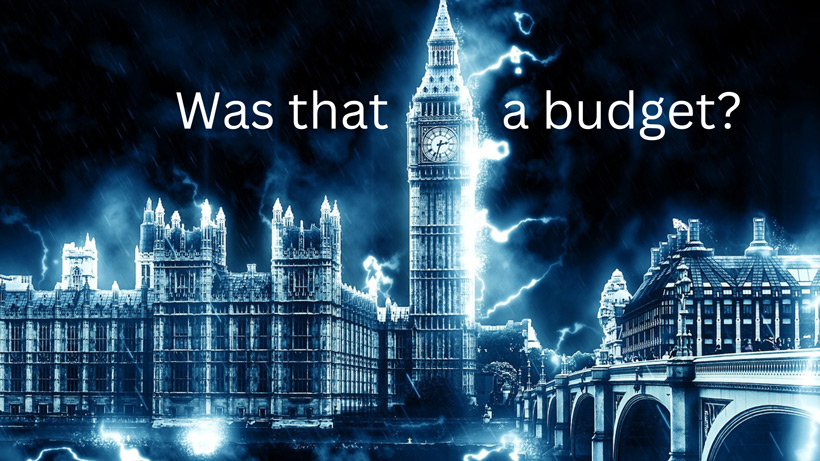Was that a budget?

They may have called it a 'Financial Statement', but everyone else has labelled it a mini-budget – or in some cases a 'not so mini-budget'.
Our new PM, Liz Truss, clearly has strong views and has set about applying what is termed trickle-down economics. This is based on the theory that you don't tax the rich as they're the ones that invest in business, employ people, pay VAT and improve the economy overall. However, in a time when the less affluent are being financially squeezed by rising prices all round, the longer-term benefits disappeared into the cloud of inflation for most people.
This is our overview of the key issues that affect businesses in one way or another.
- Higher rate tax payers had the 45% rate on all income of £150K removed, so the top rate dropped back to 40%. However, that 45% rate has now been reinstated due to pressure of public opinion and the Office of Budget Responsibility's feedback.
- Income tax was reduced from 20%-19% which benefits almost everyone who pays tax.
- Although it actually happened before the mini-budget', the increases previously announced of 1.25% in National Insurance and the health and social care levy of 1.25% have now both been rescinded.
- Corporation tax will no longer increase, remaining at 19%, although this benefits the bigger businesses, as it would not have affected companies earning less than £50K anyway.
One positive step is that there has been a change to the Seed Enterprise Investment Scheme (SEIS).
As of April 2023, companies will be able to raise £250K in SEIS, this was previously £150K – and they can raise this any time during their first three years of trading, an extension of a year compared to the previous two year restriction.
To qualify for being eligible to raise SEIS companies must now have less than £350K in gross assets, an increase of £150K on the previous limit.
On the other side of the investment equation, investors will be able to invest £200K personally in SEIS (and up to £1 million in EIS) each year. This has doubled from the £100K figure currently in place and should be of benefit to new businesses, giving them access to more investment.
This is good news for both investors and new companies as there are big benefits for both parties, as well as some risk.
Another positive step are the changes to the off-payroll working regulations – IR35. The reforms of the past 5-6 years have been canned! This means that the responsibility for deciding whether a contractor is an employee or not has passed back to the sub-contractor themselves and is no longer in the hands of the larger companies.
Back to the 1980s
It's known that Liz Truss is a big Margaret Thatcher fan and now appears to have adopted a policy Mrs T brought in during the early 1980s – investment zones.
This policy was focused on encouraging people to work in or near the area where they live. Back in the days before mobile phones and the internet that had some merit, but the world has changed and people work digitally. Now Ms Truss has copied and pasted much of the policy into the 2020s, with a few minor adjustments and identified 38 local councils where this 'might' work.
It is an optional scheme that offers the council the opportunity to remove the requirement to pay a percentage of the revenue collected through business rates to central government if they adopt the policy.
However, new businesses that are created to provide work opportunities for local residents also benefit from not having to pay business rates – so the council that adopts the scheme will save a percentage of zero! It's currently difficult to see if this scheme will take off. We will wait and see how this develops.
It's a movable feast!
At the time of writing this was the situation – but as with all things relating to government policy, it's a snapshot in time. With one U-turn already in place in the handful of days following the mini-budget, others could follow. Our advice is to double check with your accountant or financial advisor before taking anything as current fact.
Please note that this article was written prior to Liz Truss resigning as Prime Minister on 25th October 2022. The information presented here has now been changed. See 'As you were'